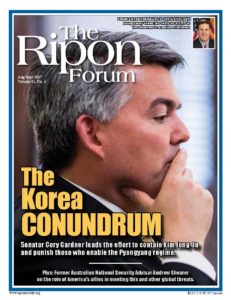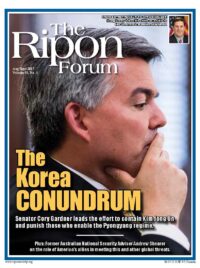 Seventy years ago this summer, George Marshall delivered a commencement address at Harvard that was remarkable for its brevity and content. The address lasted only 11 minutes. And rather than talk about the future of the graduates before him, he spoke about the future of the world and why it was in the best interest of America to take the lead in rebuilding Europe and helping those countries that had been devastated by World War II.
Seventy years ago this summer, George Marshall delivered a commencement address at Harvard that was remarkable for its brevity and content. The address lasted only 11 minutes. And rather than talk about the future of the graduates before him, he spoke about the future of the world and why it was in the best interest of America to take the lead in rebuilding Europe and helping those countries that had been devastated by World War II.
“It is logical that the United States should do whatever it is able to do to assist in the return of normal economic health in the world, without which there can be no political stability and no assured peace,” the former General and then-Secretary of State stated in laying out what would become known as the Marshall Plan. “Our policy is directed not against any country or doctrine, but against hunger, poverty, desperation and chaos … Political passion and prejudice should have no part. With foresight, and a willingness on the part of our people to face up to the vast responsibility which history has clearly placed upon our country, the difficulties I have outlined can and will be overcome.”
In making his argument, Marshall appealed to the sense of American exceptionalism that had been renewed following the war. But he also appealed to America’s sense of reason. It was “logical” for the United States to come to the aid of our allies. It was part of our “responsibility” as a world leader. Today, it often seems that the values which Marshall espoused in 1947 have little relevance to the politics and foreign policy of 2017. Appeals based on logic have been replaced by appeals based on emotion, and the sense that America has a responsibility to the rest of the world has been replaced by a sense of isolation and belief that the United States will be stronger if we just focus on America first.
Marshall’s brevity has been replaced by Trump’s Tweets. And one could argue that the world is a more dangerous place as a result. In this latest edition of The Ripon Forum, we take a look at this world and some of the threats that we face.
Leading our coverage is an interview with U.S. Sen. Cory Gardner (R-CO). Gardner serves as Chairman of the Foreign Relations Subcommittee on East Asia, the Pacific, and International Cybersecurity. In the two years he has served in this role, he has become a leading voice in the effort to contain Kim Jong Un. He discusses the Korea conundrum in this edition, and shares his thoughts on some of America’s other global challenges, as well.
Bruce Bennett of the Rand Corporation further explores the effort to move beyond the “strategic patience” that has defined the U.S. approach toward North Korea in an essay that explores some of the different policy options facing U.S. policymakers. In meeting this and other global challenges, the U.S. will need the help and cooperation of other nations. And as former Australian national security advisor Andrew Shearer writes in another essay, it is time for America’s allies to step forward in this regard.
Dean Cheng of the Heritage Foundation examines how China views the United States and the rest of the world in another essay, while Robert Manning of the Atlantic Council looks at the state of U.S. missile defenses in light of the growing North Korean threat. And in another essay, Ian Wallace of New America writes about NATO’s growing role in keeping global cyber networks secure.
Closer to home, Will Marshall, the well-respected President & Founder of the Progressive Policy Institute, writes about Democratic efforts to rebuild their party heading into the 2018 mid-term elections. And with Congress eyeing tax reform as a priority, Gordon Gray of the American Action Forum explores the prospects that an agreement might be reached this fall.
In our debate, authors and professors Kevin Guzman and Gregory Koger square off about the future of the filibuster and whether it should be preserved or abolished. And in our latest Ripon Profile, Republican rising star and former Coldstone Creamery CEO Doug Ducey discusses his background in business, his career in politics, and his priorities as the Governor of Arizona.
As always, we hope you enjoy this edition of the Forum, and encourage you to contact us with any comments, questions or ideas you may have.
Lou Zickar, Editor
louzickar@riponsociety.org




